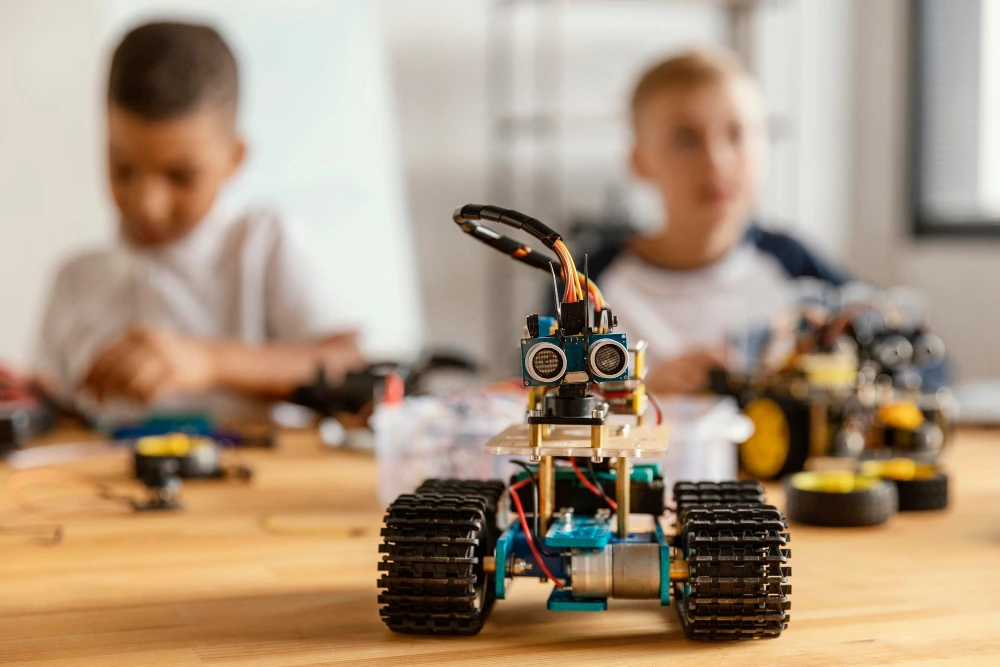Cheaters Beware: Exposing the Truth
Stay informed about deceitful behaviors and protect yourself from betrayal.
Robots on the Rise: Are They Coming for Our Jobs or Our Hearts?
Discover if robots will take our jobs or transform our lives in unexpected ways. Join the debate and find out what's at stake!
The Future of Work: How Robots are Transforming Job Markets
The future of work is increasingly being shaped by the advent of robotics and automation, which are transforming job markets across various industries. Robots are not just performing repetitive tasks; they are also taking on complex roles that require precision and efficiency. According to recent studies, it's predicted that by 2030, up to 20 million manufacturing jobs worldwide could be displaced by robots. However, this shift also presents a unique opportunity for workers to upskill and transition into more creative and analytical roles that machines cannot easily replicate.
As we move forward, it is crucial to acknowledge both the challenges and benefits brought about by this technological revolution. While some jobs may disappear, new job categories are emerging, focusing on robotics maintenance, data analysis, and AI development. Companies and educational institutions must collaborate to ensure that the workforce is equipped with the necessary skills to thrive in this new environment. Adaptability and continuous learning will be key for individuals looking to succeed in the evolving job landscape, where robots and humans will increasingly work side by side.

Can Robots Replace Human Emotion? Exploring Human-Robot Relationships
The question of whether robots can replace human emotion is increasingly relevant as advancements in artificial intelligence prompt closer interactions between humans and machines. While robots excel in processing data and performing tasks with precision, they fundamentally lack the capacity for genuine emotional experiences. Recent studies suggest that while robots can simulate emotional responses through programmed algorithms, they do not possess the intrinsic ability to feel. This limitation raises significant questions about the nature of human-robot relationships and whether such connections can ever truly replicate the depth and complexity of human interactions.
Moreover, the implications of human-robot relationships extend beyond mere companionship. For instance, many individuals are turning to robots for caregiving roles, such as in elderly care settings, where emotional support is essential. Although robots can offer companionship and even mimic emotional responses, they do not understand human feelings in the same way that people do. This distinction can lead to a sense of disillusionment for those seeking comfort from their robotic counterparts. Ultimately, while robots can play a supportive role in our lives, it remains to be seen whether they can ever truly fulfill our emotional needs or if they will always exist as tools rather than companions.
Robots vs. Humans: What Jobs are at Risk and What Can We Do?
The ongoing evolution of technology has raised important questions about the future of work, particularly concerning robots vs. humans. As automation continues to advance, certain jobs are increasingly at risk. Positions in manufacturing, data entry, and even customer service are being transformed by robotic technologies that can perform repetitive tasks more efficiently than humans. Experts predict that up to 45% of jobs could be automated over the next two decades, leading to significant shifts in the labor market. Industries such as agriculture, transportation, and retail are particularly vulnerable, as they rely heavily on routine tasks that can be automated.
To mitigate the impact of automation on the workforce, it is crucial for both individuals and organizations to adapt. Workers can invest in upskilling and reskilling to remain competitive in an evolving job market. Focus on developing skills that are less likely to be replaced by machines, such as creativity, problem-solving, and emotional intelligence. Employers, on the other hand, should prioritize creating a hybrid workforce where humans and robots collaborate. By embracing this new model, we can harness the strengths of both and ensure that humans remain an essential part of the workforce, even as technology continues to advance.